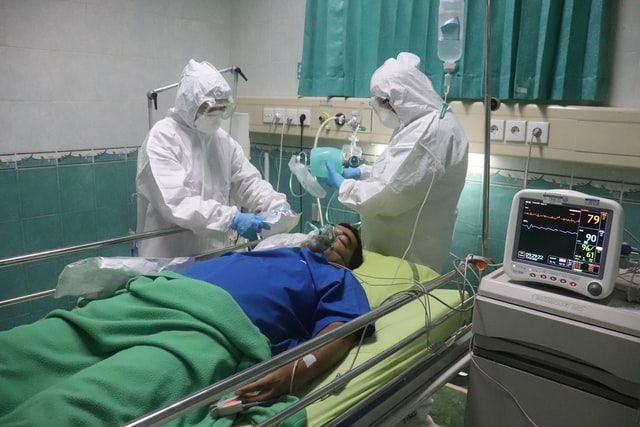Amid a raging coronavirus pandemic, doctors in India are witnessing a rise in mucormycosis (MM), a serious but rare fungal infection, which they say is being triggered by the COVID-19 infection. The first case of MM was reported last year.
According to PTI, Delhi‘s Sir Ganga Ram Hospital admitted six cases of mucormycosis in two days last week. The hospital treated patients suffering from the deadly infection in December as well.
Also read: Black fungus cases spike, Delhi’s AIIMS reports 20 cases daily
Also known as Black Fungus, the rare infection is not new. But what is new is COVID-19 triggering mucormycosis.
MM has been a cause of disease and death of patients in transplants, and ICU and immunodeficient individuals for a long time.
Also read: As black fungus cases spike, Amphotericin injection disappears from markets
It most commonly affects the sinuses or lungs after inhaling fungal spores from the air, or the skin after the fungus enters through a cut, burn or other types of skin injury.
Mucormycosis infects people with weak immune systems and other existing illnesses. Its symptoms include nose obstruction, swelling in the eyes or cheeks and black crusts in the nose.
According to a TOI report, mucormycosis is sending COVID recovered patients back to ICUs and surgical wards. People with uncontrolled diabetes and heavy use of steroids to survive COVID complications are worst affected.
Senior ENT surgeon Dr Navin Patel from Gujarat told TOI, “A tsunami of mucormycosis is happening which threatens to kill patients who were saved from COVID.”
The alarming surge in COVID-19 cases has not only triggered mucormycosis but also the shortage of amphotericin B, a drug used to treat the infection.
Also read: Rajasthan declares black fungus an epidemic
As per an advisory issued by Gujarat‘s health department last year, the overall mortality rate of the infection is around 50%, however, early identification and treatment can lead to a better outcome.
It said that people with diabetes or cancer, or those who underwent organ transplant, stem cell transplant, or people with too much iron in the body are at greater risk of contracting this infection.
In order to avoid Black Fungus, people should not come in direct contact with dust, wear shoes, long pants and gloves while handling soil or moss, and clean skin injuries well with soap and water, said the advisory.







